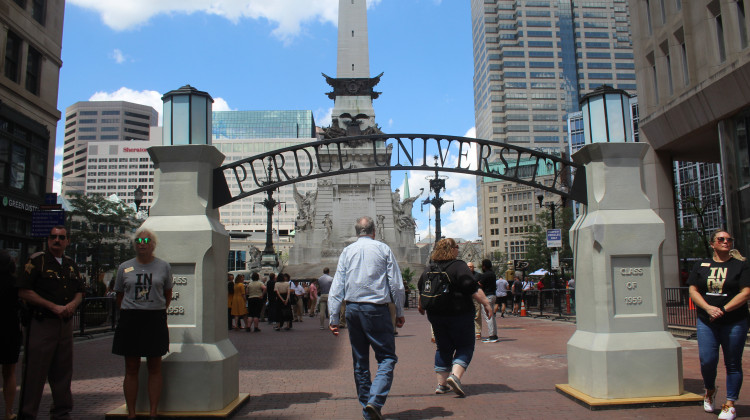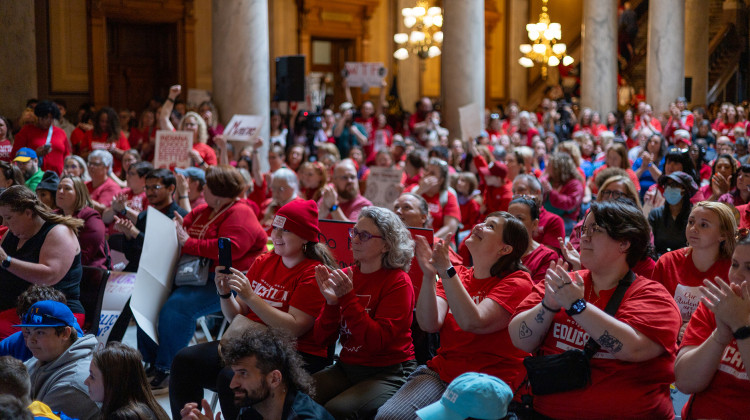
A bill that requires schools to allow students to leave for religious education passed both the House and Senate and is headed to the governor's desk.
Lauren Chapman/IPB NewsSchools must release students for religious education under a bill headed to the governor’s desk. House Bill 1137 retained language about religious instruction but axed language that would have let clergy work as chaplains in schools.
The Senate added the chaplain language from Senate Bill 50 into the religious education bill after the House declined to hear SB 50. The proposal was meant to help alleviate Indiana’s school counselor shortage by allowing chaplains to work as secular counselors in schools.
The chaplain language was recently removed from the religious education bill by a bipartisan committee after disagreement between the House and Senate. The bill that passed both the House and Senate only includes language about releasing students from school for religious instruction.
Faith-based education is not a new concept. Indiana already allows schools to release students for religious education. The main changes in this year’s legislation involve the school’s role in releasing students.
The bill’s proponents say it changes a “may” provision to a “shall.” That means schools would be required to release students for off-campus, parent-approved religious instruction instead of having the option to.
Join the conversation and sign up for the Indiana Two-Way. Text "Indiana" to 765-275-1120. Your comments and questions in response to our weekly text help us find the answers you need on statewide issues, including our project Civically, Indiana and our 2024 legislative bill tracker.
Sen. Jeff Raatz (R-Richmond), one of the bill’s sponsors, said this type of religious education is important because it helps students build character. He said any students who want that education should be able to receive it.
Some lawmakers opposed the changes in the bill. Sen. Andrea Hunley (D-Indianapolis) said the religious education mandate takes away local control from schools.
“We are taking away the power of a local governing body to make a decision for itself about who they partner with in the community,” she said.
Hunley and other lawmakers said they are concerned about schools being unable to say no when religious education organizations ask to take large groups of students out of school at one time. Lawmakers also expressed concerns about a lack of oversight of those organizations.
“School boards have said that there are certain organizations they didn’t want to partner with. Principals have said that there are certain organizations they didn’t want to partner with, and now we are usurping their power by saying, 'You shall. You are required to,'" Hunley said.
Despite those concerns, the bill passed both the House and Senate. It now goes to the governor’s desk where it will be signed, vetoed or passed without the governor’s signature.
Kirsten is our education reporter. Contact her at kadair@wfyi.org or follow her on Twitter at @kirsten_adair.
9(MDAyMzk1MzA4MDE2MjY3OTY1MjM5ZDJjYQ000))
 DONATE
DONATE






 Support WFYI. We can't do it without you.
Support WFYI. We can't do it without you.